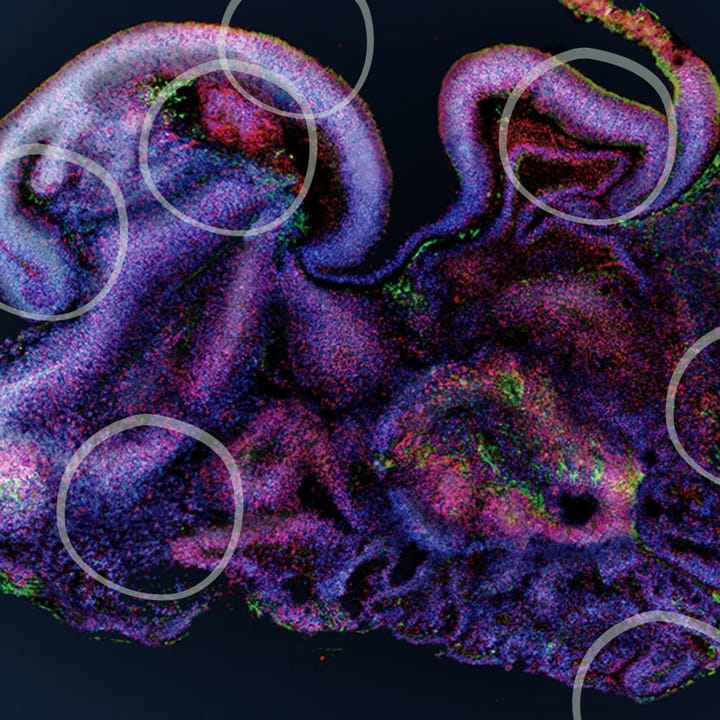(1/3) Trojan horse bacteria and biomarker transistors may solve some cancer questions – so say UK-based startups ChronosDx, Cansor, and Neobe Therapeutics. By Mia Shepherd.
The first article of our November '23 feature on Cancer (1/3)
The complexity of cancer creates challenges in diagnosis and treatment. Numerous factors contribute to its development, with symptoms including fatigue, weight loss, and headaches overlapping with other conditions. Imaging tools, biopsies, and blood tests are the standard diagnostic methods, although they do not always provide a definitive diagnosis and have limited ability to predict disease progression. Some cancers have even evolved the ability to ‘hide’ from the immune system by changing the proteins they express on their surface which can render immunotherapies useless.
Neobe Therapeutics
Many approved cancer treatments are immunotherapies that boost the immune system’s ability to destroy cancer, such as CAR-T cell therapy. The problem is they are largely ineffective in “cold” tumours that have an immunosuppressive microenvironment. Neobe Therapeutics is engineering bacteria to infiltrate tumours and alter their microenvironment to enhance responsiveness to immunotherapy. They have seen positive results in experimental models of tumour regression and survival rate. As Neobe is working with live bacteria, safety is paramount, so the bacteria cannot cause disease and is genetically modified to limit replication.
Other start-ups are also working on similar solutions. For example, Parthenon uses antibodies instead of bacteria to target the extracellular matrix with another, Theriva, using viruses. Of these, Neobe has a unique approach so is the “only one currently using this technology to target the extracellular matrix” (jelly-liked fluid between cells) says co-founder Pedro Correa de Sampaio.
ChronosDx
ChronosDx is developing an assay to identify biomarkers for highly heterogeneous diseases to treat different patients with different biomarkers, which is particularly important in cancer treatment. ChronosDx’s biosensing platform is capable of real-time monitoring, therefore offering the unique possibility to continuously observe the drug’s effects. The fundamental component of this technology is the organic electrochemical transistor. They are comprised of a conducting polymer layer which serves as a channel between two electrodes and contains an antibody-like molecule that can selectively bind the biomarker of interest. This initiates an electrical signal that is amplified and analysed to quantify the biomarker concentration in the sample. Most of the components can be reused and produced at a large scale, underpinning ChronosDx’s vision of scalability.
Their main competitors, Cardea Bio and GBS Inc. also use electrochemical transistors to create biosensing platforms, although they are less sensitive. Co-founder Dr Ella Mi describes the platform as having ‘exquisite sensitivity, down to single molecule detection’, because the measurements provided are precise over a far greater range of biomarker concentrations than conventional assays. Their main obstacle to commercialisation is identifying diseases where the technology will have the greatest impact.
Cansor
Cansor is also developing a biomarker detection assay but with a more specific application. This start-up is working on a blood testing technology that aims to diagnose prostate cancer more accurately. Prostate cancer is the fifth most common cause of cancer deaths among men. Co-founder Dr Wu is motivated by “being able to translate research into innovation that patients can really benefit from” in hopes of reducing mortality.
The prostate-specific antigen (PSA) test is the standard diagnostic tool which measures blood levels of a protein produced by the prostate. A small amount of PSA is normal, but when the prostate gland is enlarged or cancerous, levels are elevated. However, a positive test result (high PSA level) does not necessarily correlate with cancer that is aggressive enough to need treatment, because other factors like prostate inflammation and sexual activity can also increase PSA levels.
Cansor’s profiling technology analyses cell-free DNA in the blood because it provides genetic information about cancer-specific mutations. Their mission is to develop a risk stratification tool to prevent the over-detection of clinically insignificant prostate cancer.
These entrepreneurs are bravely entering a space dominated by companies with far more resources, motivated first and foremost to develop technology that benefits patients. Though these startups are still in their infancy, they are on track to produce potentially life-changing results soon.
References:
Cover Image: V. Rajavat, UCL Science Magazine Graphic Designer
- Render chemotherapies useless:
Dhatchinamoorthy, K., Colbert, J.D. and Rock, K.L. (2021). ‘Cancer immune evasion through loss of MHC class I antigen presentation’, Frontiers in Immunology, 12. doi.org/10.3389/fimmu.2021.636568.
- Immunosuppressive microenvironment:
Appleton, E., Hassan, J., Chan Wah Hak, C., Sivamanoharan, N., Wilkins, A., Samson, A., Ono, M., Harrington, K. J., Melcher, A., & Wennerberg, E. (2021).’ Kickstarting immunity in cold tumours: Localised tumour therapy combinations with immune checkpoint blockade’, Frontiers in Immunology, 12. doi.org/10.3389/fimmu.2021.754436
- Tumour regression and survival rate:
Sedighi, M., Zahedi Bialvaei, A., Hamblin, M. R., Ohadi, E., Asadi, A., Halajzadeh, M., Lohrasbi, V., Mohammadzadeh, N., Amiriani, T., Krutova, M., Amini, A., & Kouhsari, E. (2019). ‘Therapeutic bacteria to combat cancer; current advances, challenges, and opportunities’, Cancer medicine, 8(6), pp.3167–3181. doi.org/10.1002/cam4.2148
- Fifth most common cause of cancer deaths:
Jacklin, C., Philippou, Y., Brewster, SF., and Bryant, RJ. (2021). ‘More Men Die with Prostate Cancer than Because of It’ - an Old Adage That Still Holds True in the 21st Century’, Cancer Treatment and Research Communications 26: 100225. doi.org/10.1016/j.ctarc.2020.100225
- Prostate inflammation and sexual activity:
Herkommer*, K., Meissner, V. H., Hollerer, M., Kron, M., Schiele, S., Albers, P., Arsov, C., Kuczyk, M., Imkamp, F., Hohenfellner, M., Schütz, V., & Gschwend, J. E. (2020). ‘Effect of sexual behaviour on prostate-specific antigen levels in middle-aged men screened for prostate cancer’, The Journal of Urology, 203. doi.org/10.1097/ju.0000000000000961.05





